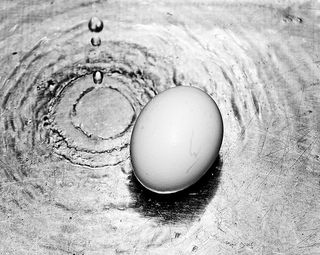Water Taste & Odors

There are a number of impurities that can give your water an unpleasant taste or smell. Dissolved minerals, sulfur and algae are just a few. In its pristine state, water is colorless, tasteless and odorless. So, if your water tastes or smells funny, you owe it to yourself to find out why.
• Earthy or musty taste and odor:
These characteristics are generally the result of compounds released by decaying vegetation and are typically associated with different forms of algae. They are most prevalent in surface water supplies. While these compounds are not toxic, the unpleasant taste and smell can be offensive even at very low concentrations.
• “Rotten egg” smell:
Hydrogen sulfide is a colorless corrosive gas that has the characteristic odor of rotten eggs. It is most commonly found in groundwater supplies and the odor is often is noticed coming from hot water tanks. It can occur naturally from deep in the ground or can be produced by sulfate-reducing bacteria. It can affect the taste of food and beverages, making them unpalatable. If present in high enough concentrations, it can leave an unpleasant odor on hair and clothing. It can also accelerate corrosion of metal parts in appliances. Because it is a gas, testing for it usually has to be performed onsite.
• Metallic taste:
A metallic taste indicates the presence of metals such as iron, copper, manganese or zinc in your water. Iron and manganese are often occur naturally and are predominantly found in groundwater. Copper and zinc can come from an aging water distribution system or the corrosion of copper plumbing and brass fittings.
If you’re concerned about the taste and smell of your water supply, contact us for a free water analysis and plumbing audit. We’ll get you reliable facts you can act on with confidence, and give you dependable, cost-effective options if your water needs treatment.

